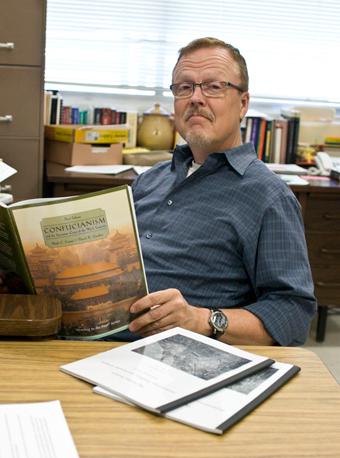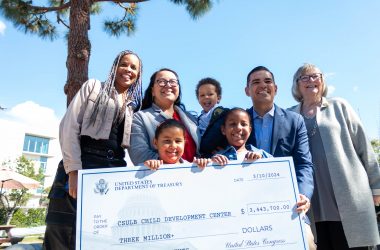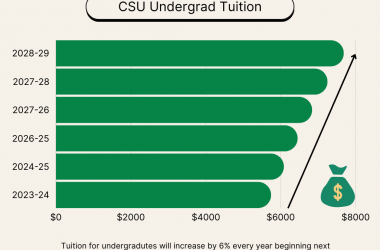Two Cal State Long Beach professors traveled to China this summer to teach more than 300 college professors innovative classroom techniques designed to improve student learning and teaching skills.
To make the trip, Professors Carlos Piar and David Tabb Stewart worked with the Society for Values in Higher Education (SVHE), an organization of teachers that led the workshops.
“The goal was to enrich the university teachers’ knowledge of intercultural communication, creative and critical thinking and experiences of interactive approach to teaching English,” said Stewart, who is on the SVHE Board of Directors.
The SVHE held four workshops at Guangdong University of Finance and Economics, Hubei University, Shanghai Normal University and Xi’an International Studies University.
Stewart and SVHE presented several teaching methods, including Reacting to the Past, a role-playing game that Stewart created.
Stewart explained that in the game, participants learn about major past events led by world-famous leaders and then assume the leaders’ roles, whether it’s Adolf Hitler, Fidel Castro or whichever person they studied. In the game, however, people can make their own historical decisions; they do not have to repeat the past.
“These games teach leadership,” Stewart said. “People become fierce because they get into their character, which makes learning exciting and desirable. Why shouldn’t learning be like that?”
He said his goals were to help teachers find a more interactive way of teaching in the classrooms in order for students to learn better.
“Research shows that the best student takes in 50 percent of a lecture and retains 15 percent of that after one month,” Stewart said. “People don’t need to know how to teach at the university level and they’re not required to take teaching classes.”
Director of West China Center for Faculty Development and Professor Dafu Yang, helped the organization find other universities to host the workshops after he met Stewart and his colleagues at the June 2012 SVHE workshops held at Beijing Foreign Studies University.
Yang said that after he heard about the planning of the 2013 Summer Workshop for Teachers in China (SWCT), he was very happy and invited SVHE to do a session at his university, Xi’an International Studies University.
“The SVHE team gave excellent talks and had well-designed demos where participants from more than 40 universities have learned a lot from,” Yang said. “The participants were all attentive and active … and I’m sure they got a lot about how to improve their design of in-class activities.”
Stewart said that Chinese academics think the teaching of critical thinking in the U.S. makes Americans both creative and innovative.
Hui Chen, who is a professor at Zhejiang Agricultural and Forestry University, was one of the participants in the workshops.
“I was able to observe the class patterns carried on in the [United States], the number one country with advanced education system,” Chen said. “My colleagues have learned a lot and will change or reform their teaching according to China’s characteristics.”
Stewart said he loved seeing the basic humanity and meeting new people through his experience, but said that he and his team faced challenges being in a communist country.
China’s president enforced a rule where no one can talk about what Stewart calls the “unmentionables.” Some of them include democracy, freedom of the press and human rights, all which are values of the United States.
“We mentioned like six of them and were scared of what would happen,” Stewart said. “One thing we did was when mentioning a critical issue of China, we compared them to [the United States’] own problems.”
Stewart said he expects to continue his teachings and hopes that student learning will improve wherever he and SVHE go.




